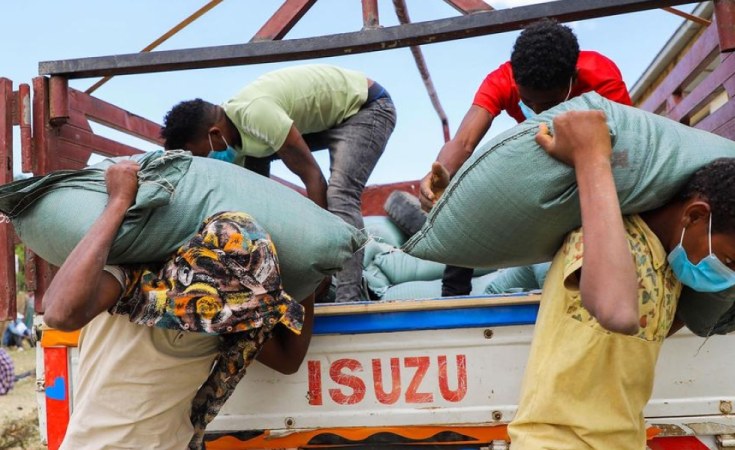Addis Abeba — UN's independent, inter-agency evaluation revealed that the collective response to the humanitarian catastrophe that engulfed three northern regions of Ethiopia; Afar, Amhara and Tigray, between November 2020 and April 2023, following the outbreak of the Tigray war, "amount to a system failure."
According to a report titled Inter-Agency Humanitarian Evaluation of the Response to the Crisis in Northern Ethiopia released by the UN OCHA on 03 June 2024, joint strategy and planning was missing among UN agencies, and the collective response "was not underpinned by humanitarian principles."
"People in need in the three regions did not receive the quantities and quality of humanitarian services they were entitled to," the report grimly stated.
Lack of preparation by humanitarian actors to provide a response in a situation of armed conflict, further compounded by an under-estimation of the scale of violence and destruction of essential infrastructure posed significant challenges from the onset of the war in November 2020. "The Scale-Up declaration, made six months into the armed conflict, was not timely. The benchmarks that the Humanitarian Country Team (HCT) developed were not tailored to the context and thus did not move the Scale-Up forward," the report highlighted.
Differing sizes of scale-up efforts in the three regions and the disproportionate focus on food insecurity in comparison with massive protection issues, such as CRSV, further compounded the inadequacy, it added.
"The number of people in need of protection was about half the total number of those identified needing food aid. Nonetheless, much of the three northern regions was an active combat zone where protection needs were acute, marked by mass killings, serious and gross human rights violations, violence against civilians and conflict-related sexual violence."
The report said "there was no collective access strategy" to deal with access issues, particularly the government imposed blockade on the Tigray region. This was despite an access agreement signed in November 2020 between the UN Humanitarian Coordinator (HC) and the Federal Government of Ethiopia. The agreement failed to include any references to international humanitarian law, making it "a control mechanism for the government."
Furthermore, "disagreements within the Humanitarian Country Team (HCT) on access and advocacy caused tensions and contributed to the lack of collective strategies more broadly. HCT endorsed documents carried little to no weight, and there was a total lack of accountability," the report stated.
"...the system failed to implement the duty of care towards members of staff, which proved to be a significant issue as humanitarian UN and non-UN agency staff were harassed, arbitrarily arrested, detained and tortured. The UN and the HCT did not speak out about these incidents."
Another major challenge had been lack of independently collected key humanitarian data. The report stated that humanitarian data in Ethiopia can only be published following the Government's approval, with the vetting process leading to delays and risks of undue interference, and forcing agencies to prefer using unvetted data.
Moreover, the report noted that the decisions by the Federal Government to declare seven UN officials who "were known for their advocacy for a principled approach" as persona non grata and expelling them in September 2021, as well as the suspension of aid in May 2023 as a result widespread aid theft had far-reaching implications.
"The humanitarian leadership was ineffective, with a disunited country team. The lack of collective strategies for advocacy and access undermined the coherence of the response," the report stated.
"Given the weaknesses in scaling up, working collectively and negotiating access, it was inevitable that the delivery of the response was far from optimal. In essence, the framework and conditions to deliver effective humanitarian services during an armed conflict were missing. The serious mistakes made in responding to the needs of the people of Afar, Amhara and Tigray amount to a system failure. The system should have been in a better position to meet the many challenges imposed by the context," the report concluded.
However, despite the many flaws, "the humanitarian response delivered critical aid, and affected communities reported it made a difference," the report indicated.
The report put forward recommendations such as developing a coherent UN-systemwide country strategy, identifying and correcting leadership or coordination deficits, enhancing preparedness and implementation of a principled response, and improving the accuracy and relevance of humanitarian data, among others.


